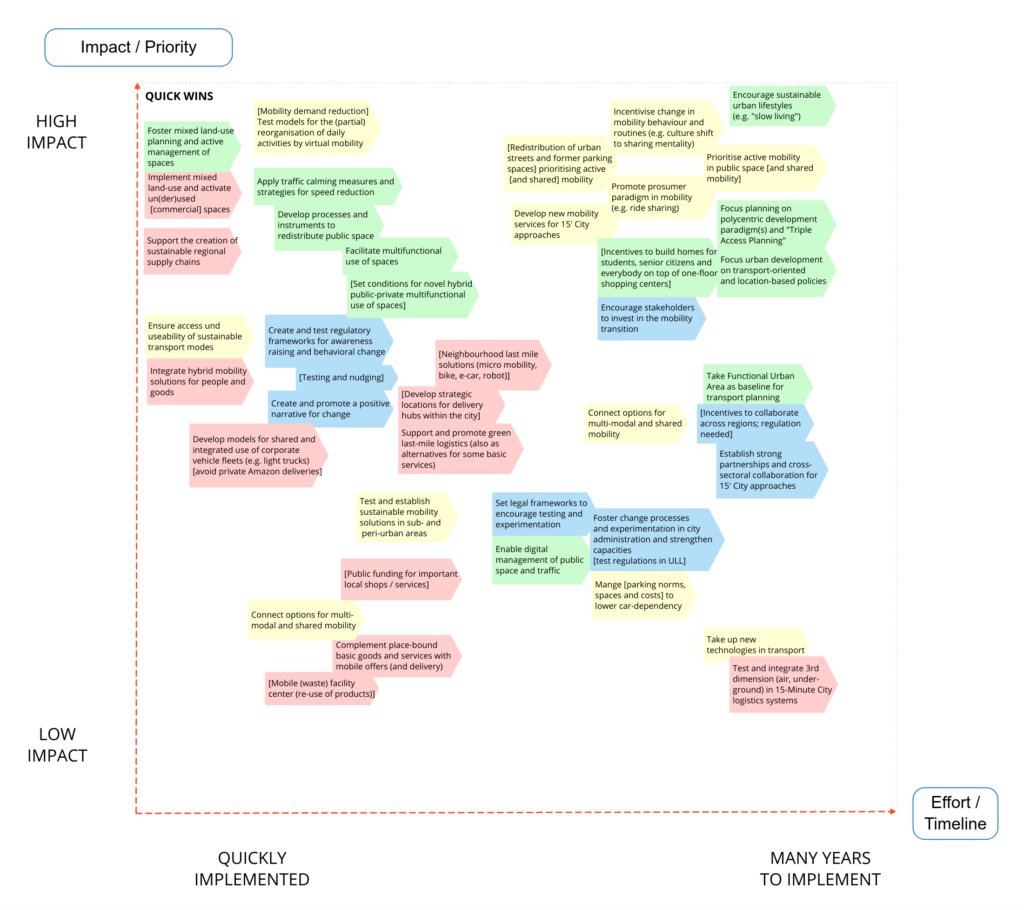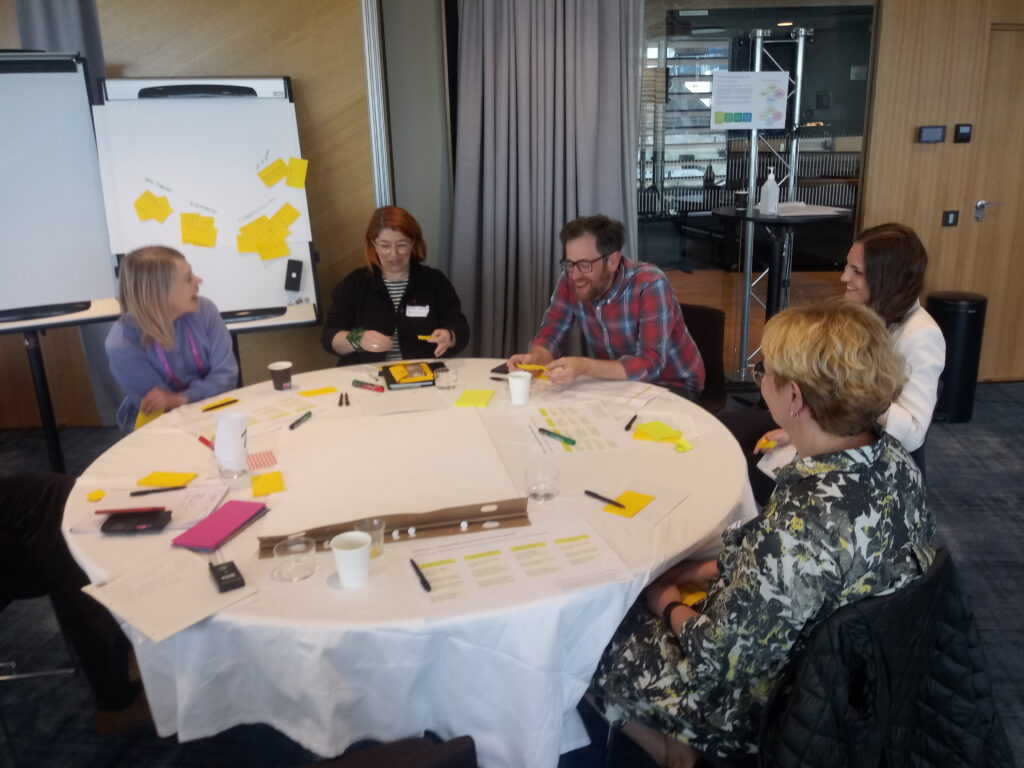Join JPI UE
Faq
FAQ
Please click here for the frequently asked questions we collected.
If you have an additional questions you are welcome to mail us at info@jpi-urbaneurope.eu
Building on outputs of previous stakeholder engagement in Driving Urban Transitions (DUT), biggest levers and issues for realising a 15-Minute City were discussed and mapped indicatively for their impart and time to realise. Between others, these issues encompass rethinking and redistributing our current use of public space, promoting actively mixed land-use planning as well as fostering instruments for sustainable logistics.

Another focus was set on gaining insights on needs and inputs for specific activities soon to be realised in DUT. Firstly, a mapping of practical experiences on strategies for and implementation of 15-Minute City approaches in cities will be conducted. Here, participants underlined the importance to keep the descriptions short and simple and focus on visualisations of results for better understanding. Furthermore, it should describe the process from idea/problem to how measures were implemented, up to examples and their impact. All in all, the mapping is seen as highly relevant to communicate good practice and provide evidence to administrative and political stakeholders.
Secondly, a brainstorming on central criteria and indicators was conducted aiming at catching and describing the essence of the 15-Minute City concept. Two groups of elements were identified at the core of such a task: The assessment of measures on urban mobility (modal share, public space, accessibility and usability) and effects on the daily life of city dwellers (health and quality of life, affordability, inclusiveness, safety, level of participation and many more). Additionally, economic impacts on business and jobs as well as impact on public budgets are key to consider.

With this, 5.5 hours of intensive, but also joyful and enlightening discussions came to an end.